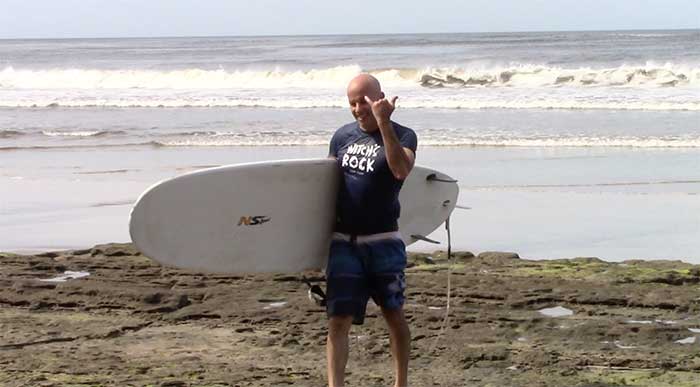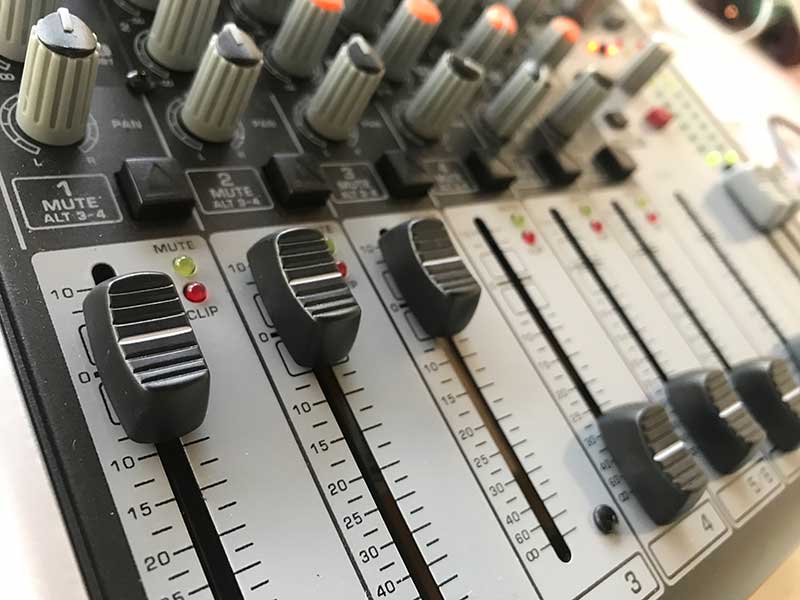
Surfing has an all-encompassing nature to it. Once it grabs hold, it does not let go.
How we eat, how we exercise, how we think, and what we focus on can become influenced by the sport. It can have a philosophical impact, so much so that a recent article in The Atlantic posed a question about whether surfing is more sport or religion.
Unless you are surrounded constantly by surfers, the passion for surfing can seem intriguing—or perhaps even peculiar—to friends, parents, spouses, and colleagues.
In a 1987 Surfer article, the author quotes Patagonia co-founder Yvon Chouinard as saying, “Surfing is one of those useless sports—it has no value to society.”
How, then, to explain that something so useless to the world can have such profound impact on the individual?
Here are some answers to the questions you may hear.
Yes, I do think about it all the time.
Surfing does not draw in the passive.
William Finnegan, in his book Barbarian Days, describes how when you commit to a surfer, you commit to surfing. As his friend explains: “It’s like if you or I hooked up with a fanatical shopper … you’d have to accept that your entire life would be traveling around to malls. Or, really, more like waiting for malls to open.”
Getting hooked on surfing begins before a person even enter the water. He or she watches others, considers the elements, thinks about what the experience might be like, overcomes trepidation.
A person may have experience in the ocean—bodyboarding or swimming—or be completely new. Yet even as a beginner, it’s an immediate challenge. From the first paddle out to the first push forward in the whitewater to the first time standing, the process of surfing offers a powerful rush to all who experience it.
Each time you see someone stand and raise their hands to the sky, you can see they are hooked.
It’s fun, exhilarating from the start.
And we chase that feeling onwards.
Why? ‘Cause science.
Surfing is good for your mental and physical health.
The physical benefits are well established. Paddling, swimming, and surfing force us to strengthen every part of our bodies and also to improve balance and coordination.
But the mental benefits are being studied as well, and may offer the greatest explanation for our passion.
Surfing puts us squarely in the moment. It offers a respite from the barrage of information many of us face each day. There are no cell phones, meetings, traffic, deadlines, news, or responsibilities to consider. Surfing requires such focus that many achieve a mindful state of clarity. Read more about The Science of Stoke here
The benefits are such that in England the National Health Service funded a surf therapy program to help individuals improve mental health challenges such as depression and low self-esteem.
Even the simple process of spending time by the ocean improves overall well-being, according to a recent NBC News article. The ocean touches on all of our senses in ways that encourage a calm, meditative state.
Of course, we know all of this intuitively, which is why …
Yes, I will try to get you to go with me.
Because words can only convey so much. We need to show you. We need to get you in the water.
We cannot fully express the joy we receive from surfing. We cannot explain the weightless feeling of dropping into a wave, moving with its energy. We cannot replicate the experience of giving up control and reacting to the environment. We cannot help you carry the stoke with you for hours after you come back to shore.
Our world becomes colored through the lens of surfing.
And we’re OK with that.
Gotta go! Waves are rolling in!







